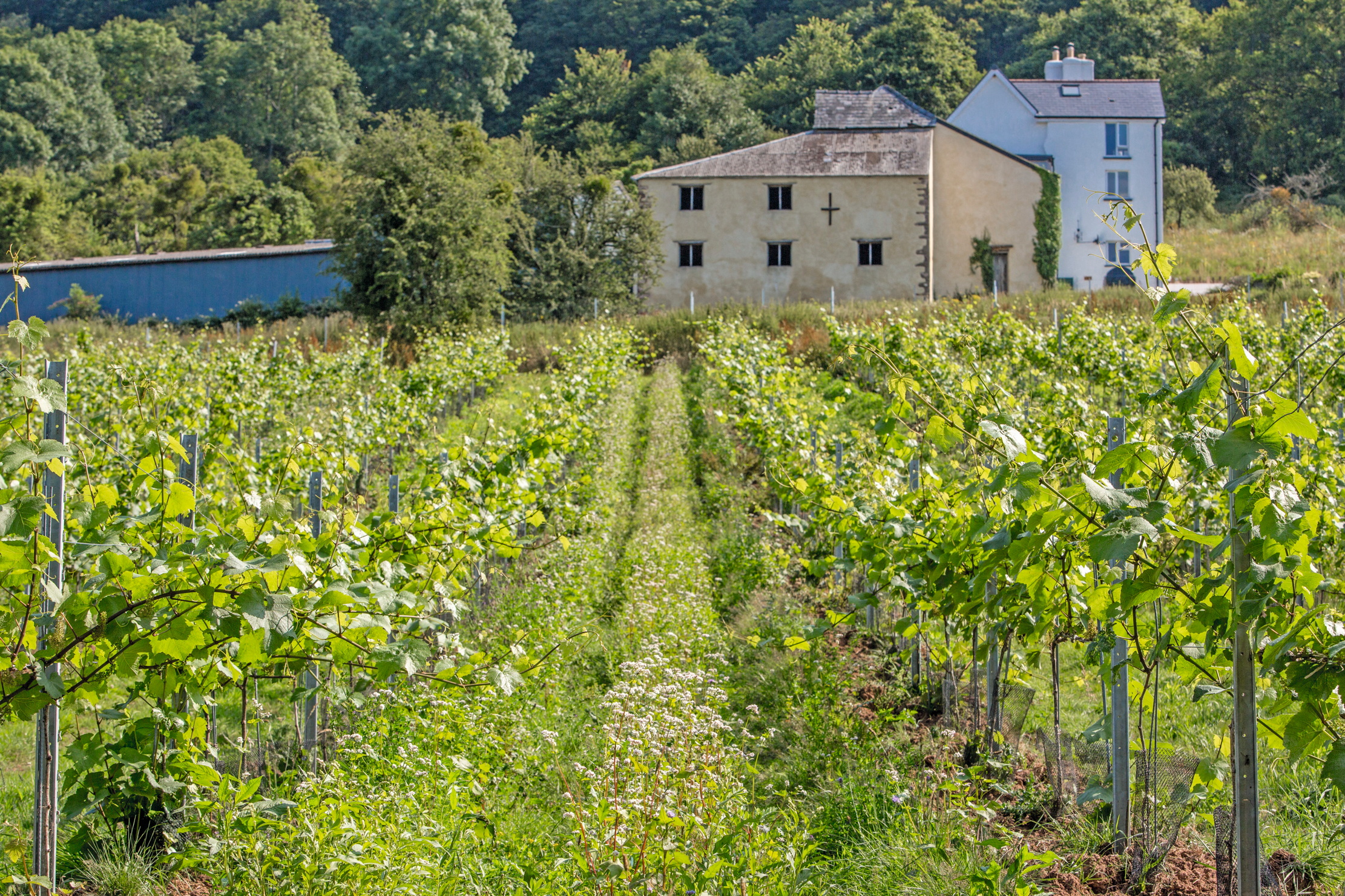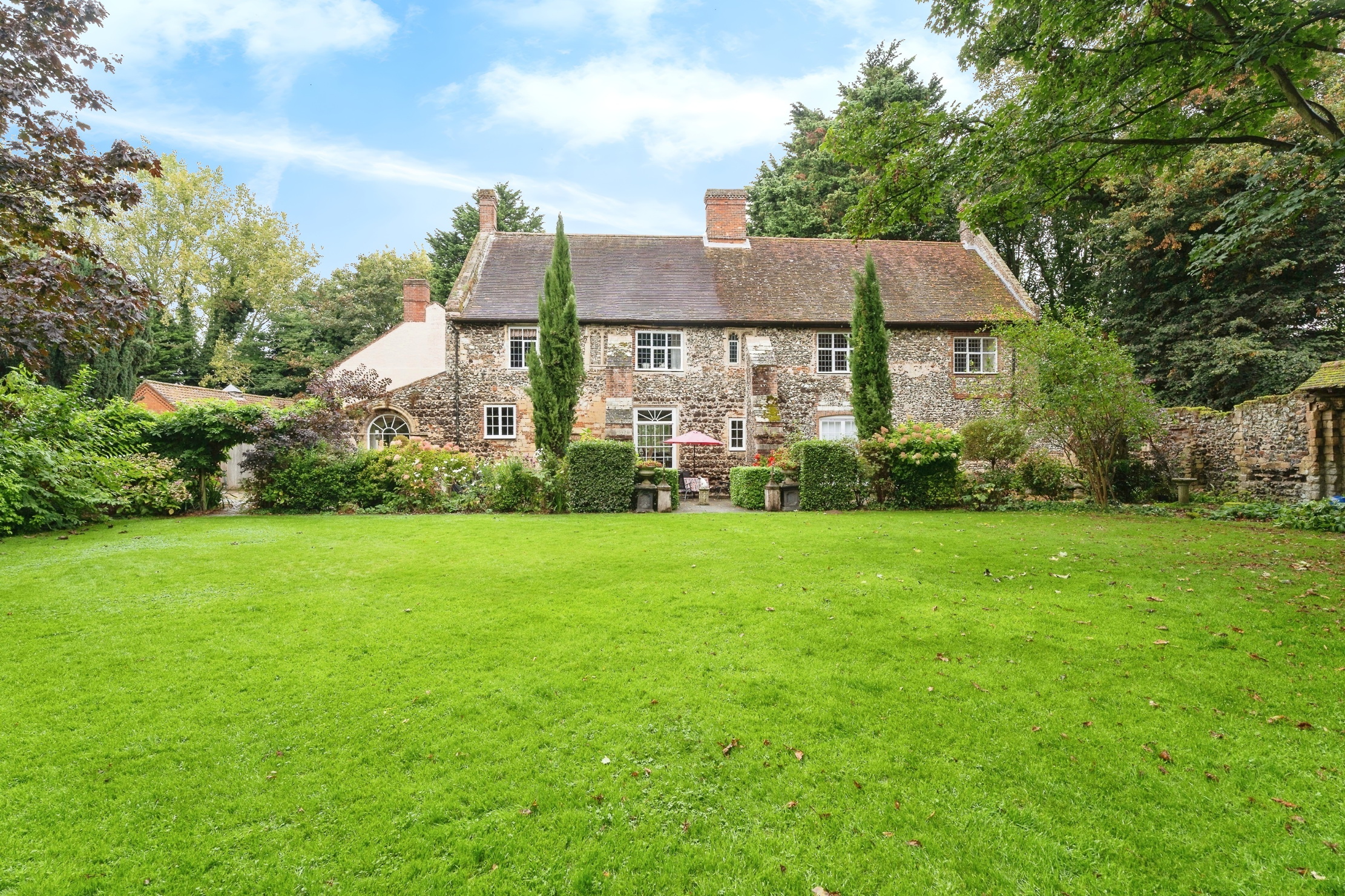You had me at merlot: The rise of English wine and what it means for the countryside
For the first time, the UK is home to more than 1,000 vineyards — and counting.


Hampshire, Kent, Sussex and Surrey are positively awash with acres under vine, after an increase in temperatures over the past decade ramped things up for an industry that had historically fallen somewhat flat.
From as early as 43BC, wine-loving Romans, Catholics and Normans established vineyards on these shores — indeed, the Domesday Book of 1086 recorded 42 vineyards in England, 12 of which were attached to monasteries. However, these efforts were scuppered by powerful adversaries such as Vikings, the Black Death, imports and the great British weather.
English wine as we know it was born again after the World Wars, when ‘founding father’ Ray Barrington Brock trialled more than 600 varieties in Surrey, forming a selection that still informs winemaking in this country today; this was followed by the publication of pioneer George Ordish’s book Wine Growing in England in 1953. In 1952, Maj-Gen Sir Guy Salisbury-Jones planted the first commercial vineyard (Seyval Blanc) at Hambledon in Hampshire — and the rest is history.
Now, grapes represent 36% of England’s soft-fruit crop (beating strawberries and blackcurrants, with 21% each), according to Defra. UK wineries have increased by 123% in the past decade to number 221, with 4,209 hectares (10,401 acres) of vines across 1,030 vineyards; in 2023, 8.8 million bottles of English wine were sold, an increase of 187% since 2018 (Food Standards Agency).
In fact, ‘viticulture is currently the fastest growing agricultural industry,’ explains Hollie Byrne of Middleton Advisors. ‘Research suggests this trend will continue… Wine GB has predicted that by 2032 there will be between 25 million and 29 million bottles produced.’ There are various reasons for this shift, one being that climate change has made the UK more suitable, enabling us to grow varieties such as Chardonnay, Pinot Noir, and Pinot Meunier. In addition, notes Ms Byrne, ‘due to the many changes in the agricultural subsidy system over the past few years, resulting in farmers receiving less government support, many landowners have diversified’.
One example is the Blenheim Palace estate in Oxfordshire, which earlier this year announced that it was seeking a long-term winery partnership to produce co-branded wines on up to 150 acres of land. ‘Blenheim Palace offers an aspirational brand association that few wine producers could ever attain,’ adds Ed Mansel Lewis, head of viticulture at Knight Frank. ‘The estate’s picturesque setting in the Cotswolds offers ideal growing conditions with cooler temperatures and dry soil.’ At the time of going to press, a number of international and domestic wine producers had expressed interest — watch this space.
How to grow your own wine
‘There is a difference between a passion project and a commercial wine business,’ explains Strutt & Parker’s Nick Watson. ‘For those taking it up as a hobby, I often recommend starting with anywhere between five to 10 acres of vines. That’s the sweet spot for the dedicated hobbyist who would like a viable business. You can expect to pay up to £25,000 per acre if you are planting your own vines and £35,000 to £45,000 per acre if you are buying an existing vineyard. Grape selection, site and soil are key,’ he advises. ‘You’ll want a south-facing slope, protected from winds and frosts, with free-draining soil and plenty of sunshine. Land available that is suited to viticulture is limited and, if a beautiful house to go with it is also a requirement, your choices narrow even further.’
Exquisite houses, the beauty of Nature, and how to get the most from your life, straight to your inbox.
He adds: ‘Starting from scratch requires patience. Once you’ve secured your site, you’ll face several key decisions. Some choose a hands-on approach, getting involved in every aspect, from land preparation to planting, maintenance and, eventually, harvesting. However, this process demands both time and expertise, and it will be five years before your vineyard reaches full production, without accounting for unpredictable weather. Many people opt to collaborate with professionals, growing the grapes and owning the final product, but outsourcing the winemaking. When everything falls into place, a vineyard offers more than just wine—it provides a fulfilling lifestyle and lasting legacy.’
There are also those to whom winemaking appeals that perhaps have had little to do with the countryside thus far, as Nick Watson, head of viticulture at Strutt & Parker observes: ‘Viticulture has become the latest trend for successful city professionals with an entrepreneurial spirit who aren’t ready to retire. More and more, I’m seeing clients who want to leave the capital and corporate life behind, but still want a purpose and to stay active’.
One such example is Tim Griffiths, formerly of the world of private equity and banking, who established the Carvers Hill estate at Shalbourne in Wiltshire, planting some 21,500 vines in 2021. ‘We built a winery, too,’ explains managing director Jack Bartholomew. ‘We’re the first vineyard in Wiltshire to have a winery and this year will be our first full harvest — hopefully 15,000 bottles. The UK produces incredible sparkling wine, but we want to crack English still wine, in particular rosé and red.’ With steep south-facing slopes and green sand over chalk, he adds, the valley was ‘not particularly productive for arable farming and, via an SFI scheme [Sustainable Farming Incentive], the vineyard is now the owner’s primary focus’.
As the industry expands, an added sweetener is that commercial vineyards (and their ancillary buildings) should be eligible for agricultural property relief from inheritance tax, much like commercial farmland (at least for now). However, ‘I haven’t come across anyone buying for this reason’, says Will Banham, partner at Knight Frank. ‘It is simply an area of huge growth, particularly in the South-East, and it’s spreading into the eastern counties, such as Essex, Cambridgeshire, Norfolk and Suffolk, where still-wine production is becoming popular.
'Although growth will always be cyclical, it’s very encouraging to see American investors still seeing England as a new opportunity. Somebody recently compared buying land for wine production here to investing in Oregon or California in the 1970s at the birth of the wine industry.’ In the words of Roman playwright Plautus, ‘let us celebrate the occasion with wine and sweet words’.
Annunciata Elwes is Country Life's news and property editor

Credit: Abbotts
A 12th century Benedictine monastery with its own chapel that's now a seven-bedroom family home
There are homes with original features, and then there's Horsham St Faith Priory in Norfolk.
Annunciata is director of contemporary art gallery TIN MAN ART and an award-winning journalist specialising in art, culture and property. Previously, she was Country Life’s News & Property Editor. Before that, she worked at The Sunday Times Travel Magazine, researched for a historical biographer and co-founded a literary, art and music festival in Oxfordshire. Lancashire-born, she lives in Hampshire with a husband, two daughters and a mischievous pug.

